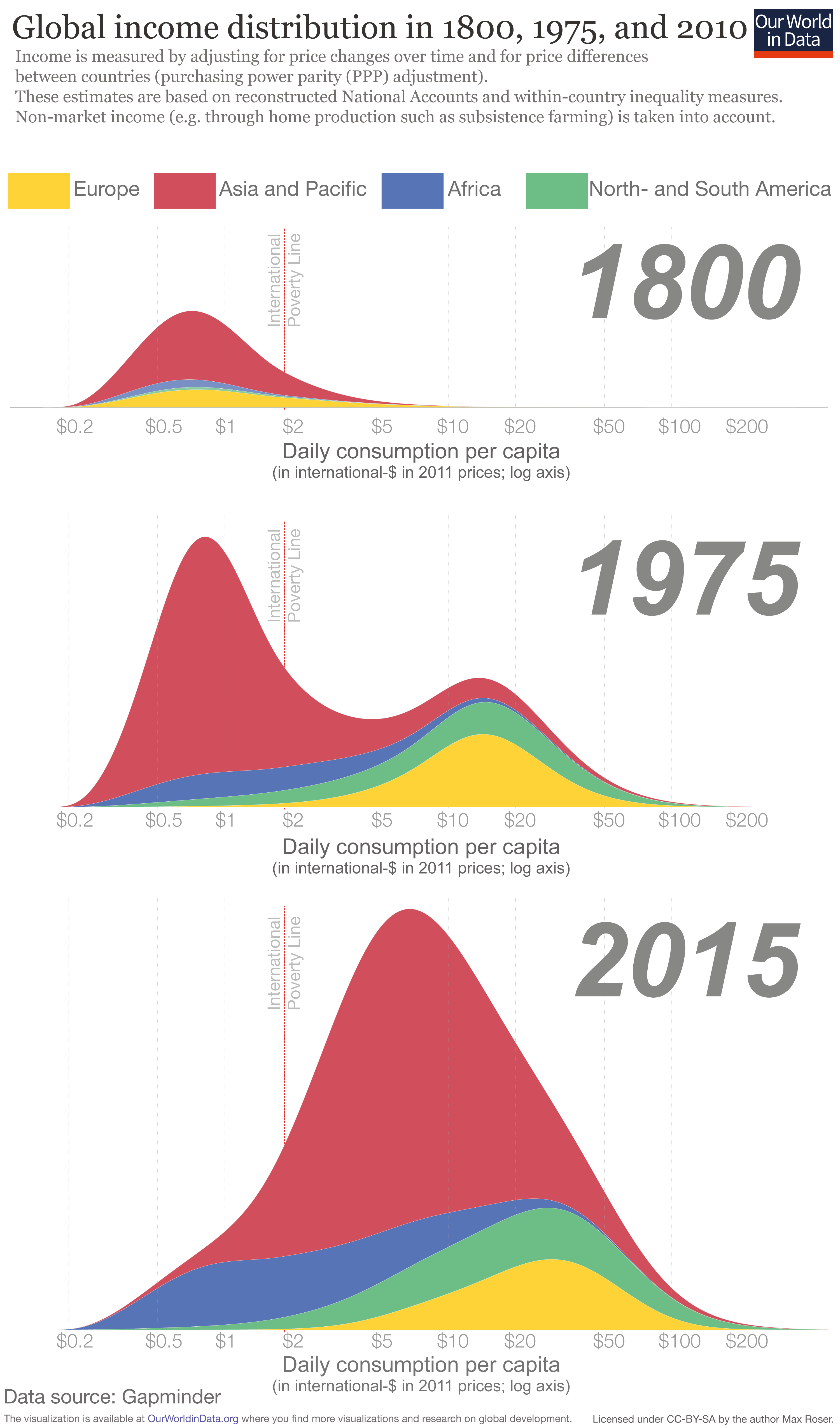"The Guardian has decided to go off on one again, telling us all how neoliberalism, in its global application, has destroyed everything that is good and holy about society. To replace it with, yes, you guessed it, the mere calculation of the markets.
There is a certain problem with this idea of course, in that Hayek (correctly noted as the founder of that modern neoliberalism) never did in fact say that all should be subject to the market. Only that it's a damn useful method of organising much of society. The definition of "much" being the interesting point of course.
There's a more specific problem here as well:
Last summer, researchers at the International Monetary Fund settled a long and bitter debate over “neoliberalism”: they admitted it exists. Three senior economists at the IMF, an organisation not known for its incaution, published a paper questioning the benefits of neoliberalism. In so doing, they helped put to rest the idea that the word is nothing more than a political slur, or a term without any analytic power. The paper gently called out a “neoliberal agenda” for pushing deregulation on economies around the world, for forcing open national markets to trade and capital, and for demanding that governments shrink themselves via austerity or privatisation. The authors cited statistical evidence for the spread of neoliberal policies since 1980, and their correlation with anaemic growth, boom-and-bust cycles and inequality.
Well, no, that's not what that IMF paper did at all. What it in fact said was:
There is much to cheer in the neoliberal agenda. The expansion of global trade has rescued millions from abject poverty. Foreign direct investment has often been a way to transfer technology and know-how to developing economies. Privatization of state-owned enterprises has in many instances led to more efficient provision of services and lowered the fiscal burden on governments.
However, there are aspects of the neoliberal agenda that have not delivered as expected. Our assessment of the agenda is confined to the effects of two policies: removing restrictions on the movement of capital across a country’s borders (so-called capital account liberalization); and fiscal consolidation, sometimes called “austerity,” which is shorthand for policies to reduce fiscal deficits and debt levels. An assessment of these specific policies (rather than the broad neoliberal agenda) reaches three disquieting conclusions:That is, the IMF thinks that deregulation, the openness of economies to trade, even the privatisations, are just great. Metcalfe then goes on to insist that we must judge neoliberalism by its results.
•The benefits in terms of increased growth seem fairly difficult to establish when looking at a broad group of countries.
•The costs in terms of increased inequality are prominent. Such costs epitomize the trade-off between the growth and equity effects of some aspects of the neoliberal agenda.
•Increased inequality in turn hurts the level and sustainability of growth. Even if growth is the sole or main purpose of the neoliberal agenda, advocates of that agenda still need to pay attention to the distributional effects.
It isn’t only that the free market produces a tiny cadre of winners and an enormous army of losers – and the losers, looking for revenge, have turned to Brexit and Trump. There was, from the beginning, an inevitable relationship between the utopian ideal of the free market and the dystopian present in which we find ourselves; between the market as unique discloser of value and guardian of liberty, and our current descent into post-truth and illiberalism.To do so we should probably look at what has happened to the world since neoliberalism started to be practised, that seems reasonable enough. 1975 seems a good enough starting date, that's just before Reagan and Thatcher. And I think that most critics of neoliberalism do indeed date its enacting to around that date, a little later perhaps. At which point Max Roser.
Moving the stale debate about neoliberalism forward begins, I think, with taking seriously the measure of its cumulative effect on all of us, regardless of affiliation.
That's such an important image that I've used it up at the top too. Because what has been the effect of neoliberalism upon the world? The poor have got rich. And ain't that a decent recommendation for a system of economic management? Perhaps we should do more of it.
There are those who disagree of course but then they're not really according with reality, are they?
What he, and what most, won’t say is that it means that this current model of capitalism is dead. It is no longer entrepreneurial. It no longer innovates. It no longer provides work. It does not aspire to do so. It only seeks to make money out of money. And that’s why society can no longer afford it. The decade has been a death throe for neoliberal capitalism. What that record low represents is the dying note for markets that no longer work. But the new has yet to be born.It's really very difficult indeed to combine that statement with the greatest reduction in human poverty in the entire history of our species. Very difficult indeed."
Wednesday, August 23, 2017
The Terrors That This Global Neoliberalism Hath Wrought
By Tim Worstall.
Subscribe to:
Post Comments (Atom)

No comments:
Post a Comment
Note: Only a member of this blog may post a comment.